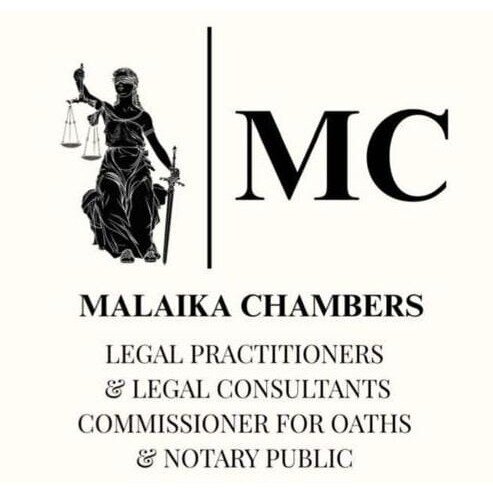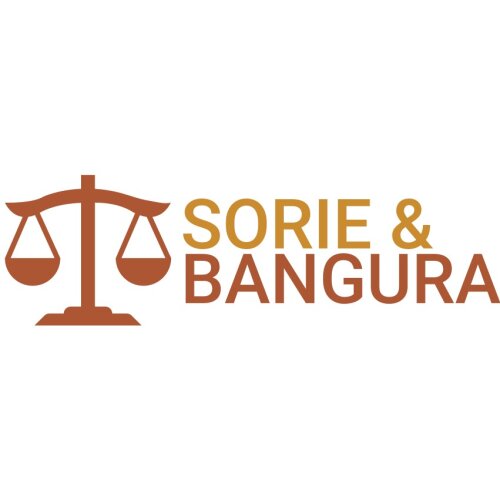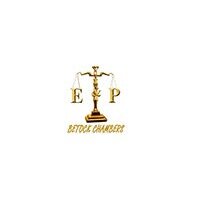Best Sanctions & Export Controls Lawyers in Freetown
Share your needs with us, get contacted by law firms.
Free. Takes 2 min.
List of the best lawyers in Freetown, Sierra Leone
About Sanctions & Export Controls Law in Freetown, Sierra Leone
Sanctions and export controls are critical areas of law that govern the movement of goods, services, and technologies across borders. In Freetown, Sierra Leone, these laws are designed to ensure compliance with both domestic regulations and international obligations, such as those established by the United Nations or regional organizations like ECOWAS. Sanctions can include restrictions or prohibitions on certain transactions with specific countries, individuals, or entities, often for reasons related to peace, security, or human rights. Export controls focus on managing the export of sensitive items, including arms, dual-use goods, and advanced technology, to prevent misuse or unauthorized distribution.
Why You May Need a Lawyer
Legal issues involving sanctions and export controls are often complex and can carry significant consequences if mishandled. There are several common situations where individuals or businesses in Freetown may need assistance from a lawyer with expertise in this field:
- Understanding whether certain items or services require export permits or licenses
- Determining if potential business partners, clients, or suppliers are subject to domestic or international sanctions
- Responding to investigations or enforcement actions for alleged breaches of sanctions or export control regulations
- Advice on compliance programs to prevent accidental violations
- Guidance on humanitarian exemptions or reporting requirements
- Advice to banks and other financial institutions handling restricted transactions
A lawyer can help interpret the laws, guide businesses through compliance obligations, defend against enforcement actions, and help mitigate risk.
Local Laws Overview
Sierra Leone has implemented a range of laws and regulations governing sanctions and export controls. While Sierra Leone’s domestic law forms the foundational framework, the country is also committed to international and regional agreements. Some key aspects include:
- The Ministry of Trade and Industry, along with the Customs and Excise Department, regulates exports and ensures proper licensing procedures are followed
- Implementation of United Nations Security Council sanctions, which may include arms embargoes, travel bans, asset freezes, and other restrictions
- National Arms and Ammunition Act and additional local regulations that establish procedures for licensing the export and import of controlled items
- Sector-specific controls, particularly relating to minerals, diamonds, and other resources
- Compliance requirements for financial institutions to prevent money laundering and terrorism financing in connection with sanctioned persons or entities
Failure to comply with these laws can result in severe penalties, including fines, loss of export privileges, and criminal charges.
Frequently Asked Questions
What are sanctions?
Sanctions are restrictions imposed by the government or international bodies to prohibit or limit certain transactions with designated individuals, entities, or countries, usually for reasons such as promoting security, protecting human rights, or preventing the spread of weapons.
What are export controls?
Export controls are laws and regulations that govern the transfer of specific goods, technologies, or services across borders to ensure they are not transferred to unauthorized users or used for prohibited purposes.
Who regulates export controls in Sierra Leone?
The Ministry of Trade and Industry and the Customs and Excise Department are primarily responsible for regulating and enforcing export controls in Sierra Leone.
Do I need a license to export goods from Freetown?
In many cases, especially for arms, minerals, or dual-use goods, you will require a license or permit to export products or services from Sierra Leone. Legal advice can help clarify specific requirements.
How can I find out if a person or company is subject to sanctions?
Sanctioned individuals and entities are typically listed in official government publications, United Nations lists, or financial regulatory advisories. Lawyers can assist in conducting proper due diligence.
What are the penalties for violating export controls or sanctions in Sierra Leone?
Penalties can include hefty fines, revocation of export privileges, confiscation of goods, and even criminal prosecution resulting in imprisonment.
Can humanitarian organizations obtain exemptions from sanctions?
There are often specific exemptions or procedures that allow for the provision of humanitarian aid even in sanctioned environments, but strict compliance and reporting are required.
Are financial transactions also subject to sanctions controls?
Yes, banks and other financial institutions are required to screen transactions and accounts to ensure they are not facilitating dealings with sanctioned parties.
How do international sanctions affect local businesses in Freetown?
International sanctions can restrict a business's ability to trade with certain countries or entities, limiting market access or impacting supply chains. Legal counsel is vital to manage these risks.
How do I ensure compliance with sanctions and export control laws?
Implementing robust internal compliance programs, conducting due diligence, obtaining necessary licenses, and seeking regular legal advice are key steps to ensuring ongoing compliance.
Additional Resources
If you are seeking legal advice or further information about sanctions and export controls in Freetown, Sierra Leone, these resources may be helpful:
- Ministry of Trade and Industry - The primary government body for trade regulations and export licensing
- Customs and Excise Department - Responsible for border controls and the enforcement of import-export laws
- Sierra Leone Bar Association - Can assist in locating qualified legal professionals with expertise in this area
- Financial Intelligence Unit - For concerns related to money laundering and financial sanctions
- Relevant United Nations bodies for information on applicable international sanctions
Next Steps
If you require legal assistance with sanctions or export control matters in Freetown, start by gathering all relevant documentation, such as contracts, correspondence, shipping records, and licenses. Consult with a specialized lawyer experienced in this field to assess your situation, understand your obligations, and develop a compliance strategy. If you are facing enforcement actions, immediate legal representation is crucial. Proactive engagement with authorities and proper compliance can help avoid costly penalties and ensure your business or activities remain within the boundaries of the law.
Lawzana helps you find the best lawyers and law firms in Freetown through a curated and pre-screened list of qualified legal professionals. Our platform offers rankings and detailed profiles of attorneys and law firms, allowing you to compare based on practice areas, including Sanctions & Export Controls, experience, and client feedback.
Each profile includes a description of the firm's areas of practice, client reviews, team members and partners, year of establishment, spoken languages, office locations, contact information, social media presence, and any published articles or resources. Most firms on our platform speak English and are experienced in both local and international legal matters.
Get a quote from top-rated law firms in Freetown, Sierra Leone — quickly, securely, and without unnecessary hassle.
Disclaimer:
The information provided on this page is for general informational purposes only and does not constitute legal advice. While we strive to ensure the accuracy and relevance of the content, legal information may change over time, and interpretations of the law can vary. You should always consult with a qualified legal professional for advice specific to your situation.
We disclaim all liability for actions taken or not taken based on the content of this page. If you believe any information is incorrect or outdated, please contact us, and we will review and update it where appropriate.













